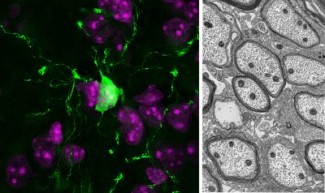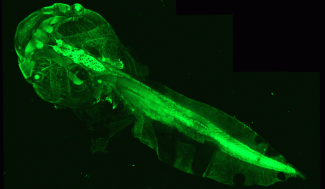Treatments for multiple sclerosis have progressed enormously over the past 16 years, with new treatments emerging that change the course of the disease and reduce the frequency of flare-ups.
Disease-modifying treatments for multiple sclerosis
Disease-modifying treatment for multiple sclerosis (MS) involves taking immunomodulatory or immunosuppressive drugs to limit the occurrence of flare-ups. There are several molecules that can be administered by injection or orally. The neurologist will choose the most appropriate treatment based on the characteristics of their patient’s disease.
Treatments during flare-ups
Multiple sclerosis flare-ups are caused by inflammation of the central nervous system and myelin attacks by the patient’s own immune cells, resulting in the various MS symptoms. During the flare-up, infusions of corticosteroids, which have a powerful anti-inflammatory effect, can help reduce the duration of the flare-up and aid recovery. These drugs do not, however, have any effect on the consequences of the flare-up in terms of the patient’s disability and residual symptoms.
Non-specific treatments
Multiple sclerosis can cause a wide variety of symptoms associated with the central nervous system. For some patients with MS, symptomatic treatments can help with spasticity and with bladder and sphincter dysfunction, for example.
At Paris Brain Institute
- After a proof-of-concept study in 30 patients in 2016, the Ad Scientiam company published a large multicenter study aimed at comparing the scores measured by the MSFC, a clinical test carried out in consultation with a neurologist, to those calculated by the MSCopilot® algorithms. Coordinated by Dr Elisabeth Maillat and conducted at 11 specialist MS centers, this study recruited 146 patients and 76 healthy volunteers who went on to take the standard paper tests and then the digital tests on smartphones. Together with Professor Catherine Lubetzki, neurologist and team leader at Paris Brain Institute, and Dr Elisabeth Maillart, Ad Scientiam confirmed that, with just four tests, the MSCopilot® score collects infinitely more variables than the standard tests, enriching the data provided to the clinician. MSCopilot® is now a CE-marked Class I medical software device focused on monitoring multiple sclerosis patients.
- The ON-STIM trial, currently conducted by Céline Louapre at Paris Brain Institute, aims to promote remyelination after an optic neuritis episode in multiple sclerosis patients using electrical stimulation.










